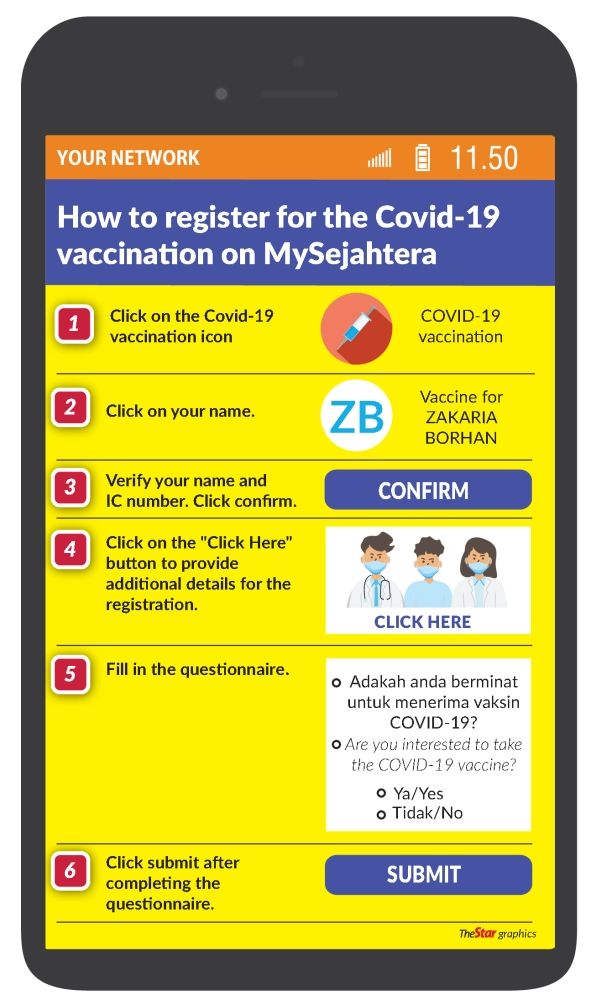Stay covered: It’s suggested that a broader respiratory health strategy is needed, including promoting pneumococcal and influenza vaccinations and ensuring early diagnosis and treatment of respiratory infections.
There is a rise in deaths related to pneumonia, which is a highly avoidable disease. It has surpassed heart disease to become Malaysia’s leading cause of death in 2023. Health experts recommend pneumococcal vaccinations for adults and high-risk groups.
Ageing population calls for focus on adult pneumonia, say docs
PETALING JAYA: Malaysia should introduce pneumococcal vaccines for adults and high-risk groups following the steady rise in pneumonia-related deaths, say health experts.
While pneumococcal vaccination is already part of the National Immunisation Programme for children, they said there is no such programme yet for adults, the elderly, and those with chronic conditions.
Federation of Private Medical Practitioners’ Associations Malaysia president Dr Shanmuganathan Ganeson said Malaysia should integrate this vaccine as it has great public health benefits.
“Many countries have successfully reduced pneumonia-related morbidity and mortality by integrating pneumococcal vaccines. Malaysia should follow suit.
ALSO READ: Understanding Malaysia’s No. 1 killer
“It will help reduce hospital admissions by preventing severe pneumonia and invasive diseases, decrease healthcare costs by minimising complications and intensive care needs, and promote herd immunity by lowering bacterial transmission to protect unvaccinated individuals.
“Cost-effectiveness studies in other nations suggest that national-level vaccinations could have a long-term economic benefit alongside improved health outcomes,” he said in an interview yesterday.
Calling pneumonia a “highly avoidable disease”, Dr Shanmuganathan noted a rise in pneumonia-related deaths, particularly in 2021, due to Covid-19.
ALSO READ: Go big to fight pneumonia, says MMA
“Even after recovery, some individuals experienced secondary bacterial infections, further increasing pneumonia risks,” he added.
He pointed out that strained healthcare capacity also delayed treatment for other respiratory conditions.
At the same time, an ageing population and prevalent non-communicable diseases like diabetes and heart disease heightened pneumonia risks.
“The rise of antibiotic-resistant strains like Streptococcus pneumoniae has complicated treatment.
“Also, the lack of widespread adoption of the pneumococcal vaccine, especially among high-risk groups, leaves a significant portion of the population vulnerable,” he said.
Dr Shanmuganathan said the pneumococcal vaccine effectively reduces the risk of severe pneumococcal disease.
He added that the pneumococcal conjugate vaccine (PCV) can prevent up to 80% of invasive diseases in children.
“For the elderly and high-risk groups, the vaccine significantly lowers the risk of complications and death.
“Its efficacy varies depending on the individual health status and the vaccine type – either the PCV or the pneumococcal polysaccharide vaccine (PPSV).
“Importantly, it offers protection against antibiotic-resistant strains of pneumococcus, addressing a growing concern.
“Malaysians, especially high-risk groups, should get the pneumococcal vaccine available in hospitals and clinics.
“This includes children under two, adults over 65, those with chronic diseases and the immunocompromised,” he said, adding that increasing the awareness of the benefits of the vaccine and its availability at most clinics is important.
With pneumonia now the leading cause of death, Dr Shanmuganathan said it is essential to update the Covid-19 vaccination programme, focusing on new variants like XEC and vulnerable populations.
He emphasised that a broader respiratory health strategy is needed, including promoting pneumococcal and influenza vaccinations and ensuring early diagnosis and treatment of respiratory infections.
“Private general practitioners should be kept informed of these developments.
“The Health Ministry must remain proactive, despite diverting staff to address the doctor shortage in clinical sectors,” he said.
Association of Private Hospitals Malaysia president Datuk Dr Kuljit Singh said while Covid-19 infections may have been reduced, influenza cases are rising, with respiratory syncytial virus (RSV) becoming more recognised as a significant infection.
As such, he said the government should consider including pneumococcal vaccines in Malaysia’s national vaccination programme.
The vaccines, he added, should also be made readily available at private medical facilities and selected clinics.
“Such a programme should be introduced as it would help reduce morbidity and mortality, especially in the high-risk population.
“Vaccines should be made widely available to reduce the cost and burden of treating illnesses,” he said.
Dr Kuljit suggested that those in the high-risk group consider getting vaccinated to better protect themselves against pneumonia.
He said private medical centres are currently using the latest vaccine, Vaxneuvance, which helps protect against 15 types of pneumococcus.
The cost of pneumococcal vaccines ranges between RM280 and RM400, depending on the type used.
When asked, Dr Kuljit said the steady rise in pneumonia-related deaths in the past decade could be from the large number of high-risk populations due to the nation’s ageing population and those suffering from non-communicable diseases, which result in compromised immune systems.
He also said the increase in cigarette and e-cigarette smoking could also be a factor in the rise of such cases.
Smoking damages the cilia (tiny hair-like structures) in the respiratory tract that help clear pathogens and debris.
“This dysfunction can lead to a higher risk of respiratory infections, including pneumonia,” he said.
Related stories:
Understanding Malaysia’s No. 1 killer
Go big to fight pneumonia, says MMA
Pneumonia is top killer in Malaysia for 2023, with over 18,000 fatalities
Related posts:








